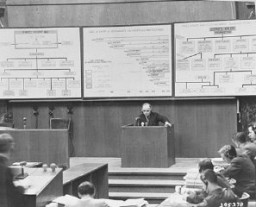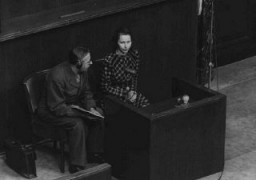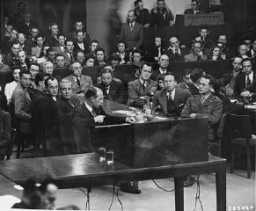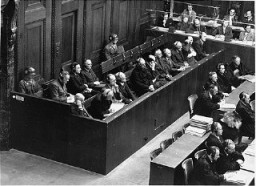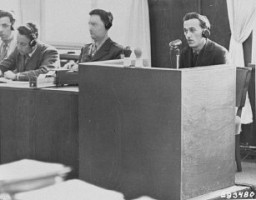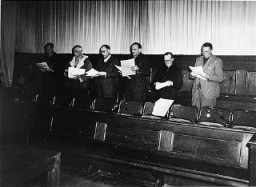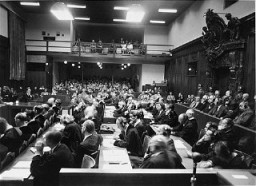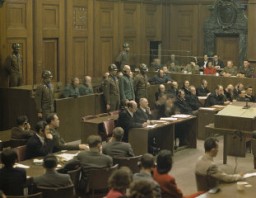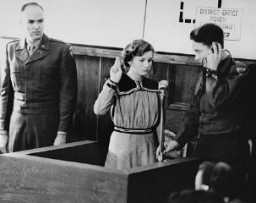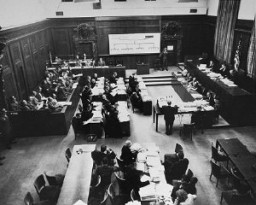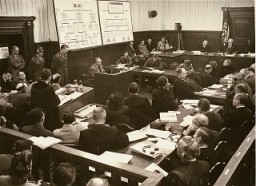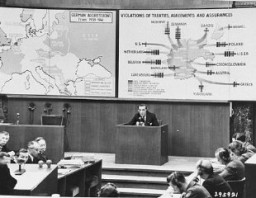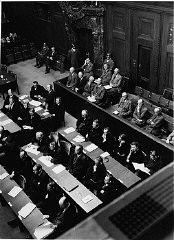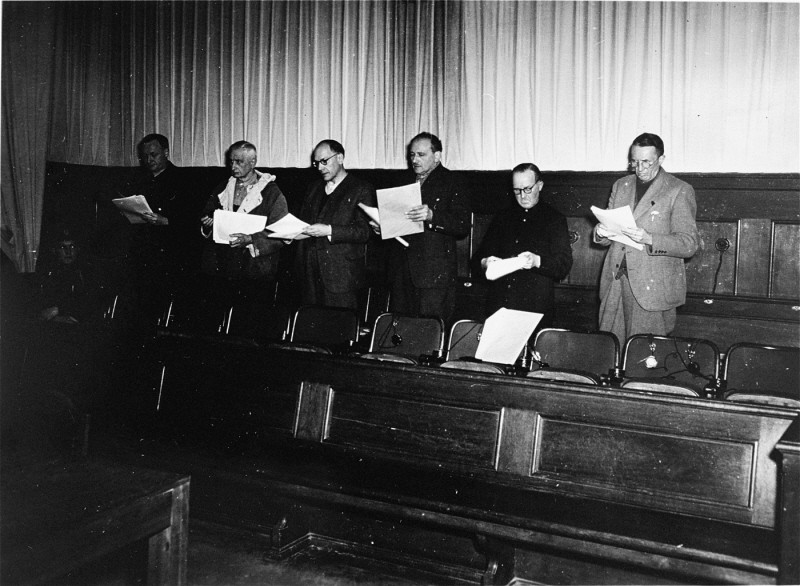
Subsequent Nuremberg Proceedings, Case #5: The Flick Case
After World War II ended, the Allies established courts in each of their occupied zones in Germany to prosecute German officials for their role in the commission of war crimes, crimes against peace, and crimes against humanity. American military tribunals in Nuremberg, Germany, presided over 12 major proceedings against leading German industrialists, military figures, SS perpetrators, and others. Included among these Subsequent Nuremberg Trials was the Flick Case.
United States v. Friedrich Flick
In April 1947, the US Military Government for Germany created Military Tribunal IV to try the Flick Case, the fifth Subsequent Nuremberg Proceeding.
There were six defendants
- Friedrich Flick
- Otto Steinbrinck
- Odilo Burkart
- Konrad Kaletsch
- Bernhard Weiss
- Hermann Terberger
All six were all leading officials in the Flick Concern, a large group of industrial enterprises including coal and iron mines and steel producing and fabricating plants, or its subsidiaries.
The men had been indicted on March 18, with the indictment listing five counts.
- All the defendants were charged with committing war crimes and crimes against humanity through the use of slave labor, the deportation for labor of civilians of German-occupied territories, and the use of prisoners of war for war operations.
- All the defendants except Terberger were charged with committing war crimes and crimes against humanity through participating in the plunder of public and private property, spoliation, and offenses against property which came under German occupation.
- Flick, Steinbrinck, and Kaletsch were charged with committing crimes against humanity through their participation in the persecution of people because of their race, religion, or politics, specifically their participation of the "Aryanization" of Jewish properties.
- Flick and Steinbrinck were charged with war crimes and crimes against humanity through their participation in the murder, torture, and atrocities committed by the Nazi Party, and specifically the SS.
- Steinbrinck was charged with being a member of the SS, which was declared a criminal organization by the International Military Tribunal.
The defendants were arraigned and the trial began on April 19. After nine months, on December 22 , the Tribunal returned its judgment, acquitting Burkart, Kaletsch, and Terberger. It found only Flick and Weiss guilty on the first count, only Flick guilty on count two, both Flick and Steinbrinck guilty on the fourth count, and Steinbrinck guilty on count five. The Tribunal dismissed the third count because it declared the evidence submitted on the count beyond its jurisdiction. On the same day the Tribunal delivered its sentences on the three guilty parties, sentencing Flick to seven years in prison, Steinbrinck to five years, and Weiss to two and a half years.
Series: Subsequent Nuremberg Proceedings
Critical Thinking Questions
- Beyond the verdicts, what impact can trials have?
- How were various professions involved in implementing Nazi policies and ideology? What lessons can be considered for contemporary professionals?
- How have some professional codes of conduct changed following the Holocaust?
- Is it ever too late for accountability?
